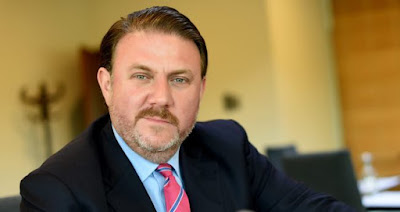The Fathers of Sons Should Die
Our platoon
commander entered the class, announced my name and called out: “The battalion
commander is waiting for you.” We knew from past experience that if a class was
interrupted in military academy to take a student out, it was no good news: it meant
either he would be subjected to
political investigation or be informed a catastrophic news. I had no
organizational affiliation, and no serious political tendency, either. On the
other hand, my father was seriously ill. Therefore, I was almost sure why I was
taken out from class. When the commander said “Bad news,” “Is it my father?” I
responded. “Unfortunately,” he replied. I immediately went to the wards to get ready
to go home.
For an
18-year-old teenager, the death of his father is huge pain. But oddly enough, I
was feeling a secret joy, and this made me feel ashamed of myself. I struggled to
concentrate and think about my father and our memories. Only then, was I able
to feel grief in my heart. Finally I was able to cry. But while one side of me
was suffering, that ignominious joy was still fidgeting somewhere deep inside.
I arrived home in this ambivalent mood. When I saw my father's dead body, the
pain hurt deeply. However, the joy was still there, and it never left me on the
following days, either. And I knew why I was happy: I was freed from a powerful
authority that intervened in every decision about my life and barricaded the
roads I drew.
When asked, everybody
can say that his father is a good person. My father was a good man, too, and
I'm not saying that out of bias. I know it based upon the sincere comments and
tears of his friends I met after his death. But I still was glad that I had lost
this good person so close to me. He was a father kidding with me, wrestling,
making jokes. But, let aside my opinion in other matters, he had not even asked
me about my views or choices about my own life, nor did he listen when I tried
to tell. Fathers - with the exception of sick souls - do not want anything wrong
for their children. Behind their scolding, forbidding, punishing and even beating
their sons, there is a strong instinct to protect their children from hazardous
effects of life and to build them up in proper manners. Since they are adults
and more experienced, it is evident that they can make the right/wrong and the
good/bad distinctions more accurately than their children. However, things may
not always go as planned. It is not
enough for a father to know the truth. He needs to make a serious effort to
discover, not his own truth, but what is right for his son.
There are
three major handicaps which prevent fathers from guiding their children in the
right manner: the generation gap, the obsessions of the father, and the
misreading of the child’s talents / personality by his father.
Fathers have certain
experience and opinions as shaped by the social and environmental conditions in
which they have grown up. If a father cannot interpret the changing conditions accurately,
he may end up having demands from his children that they are not capable of
doing. Let me give an example: Imagine a father getting angry with his child for
wasting time on computer, television or smartphones, and scolding them in
sentences like “what kind of kid are you? When we were at your age, we used to
go out, play games and football matches, run, and when we came home we used to read
books. And you are lazily lying down all day long”. Or imagine a mother warning
her child: "My son, you are eating a lot of junk food, and drinking unhealthy
drinks. God knows what they add into them”. But wait a minute. Did you have a
computer in your childhood, and instead of staying at home, you went out to
play despite the computer at home? No, because the house was boring enough, you
were throwing yourself out on the street among your friends. The reason you didnot
eat junk food is because you didnot have enough money to spend. You had to come
home to eat what your mother cooked. And my friends, those children didn't fall
from the sky. They are products of your genetic partnership. By a logical
deduction, we can assume that if you were a child today, you would most
probably live a life like your children do now. That's what they call a generation
gap. It is the duty of parents, not of children, to understand the generation gap
correctly and to produce solutions for its potential problems. You cannot shake
off your responsibility by simply telling your child not to do certain things, instead,
you need to provide attractive alternatives for what to do instead.
Fathers accumulate experiences throughout their lives. Some of these experiences may cause them severe traumas, which in turn may result in passionate obsessions in their souls. They do not want their sons to experience the same traumas and therefore, they try to steer their sons’ lives through their subjective obsessions. A middle-aged sergeant father scolded by a young lieutenant can pressure his son to become an officer. A young man who could not become a musician because his farher did not allow him, can passionately encourage his son to become a musician and provide him with all the available opportunities when he becomes a father. Some fathers may seek psychological tranquility over their sons’ realizing their own dreams and obsessions. That's pretty selfish, actually. If you ask him why, "I am considering what is best for my son," he says. Yet the uncover subject is himself.
A son can be like his father in many ways; like his stature, facial features, etc. We know from genetic facts that sons inherit on average 25% of the dominant traits of his father. Moreover, this rate is 25% for each feature separately. In other words, even the probability of a son’s receiving only 10 predetermined features from his father is less than one in thousand. Just imagine, to what percentage this rate eventually drops if one takes into consideration the thousands of genes affecting the ability and character of a person. Then again, the formation of a personality is not only under the control of genes. Even if a son were a complete clone of his father genetically, the environmental and social conditions in which he lives would be enough to make him an individual with completely different perceptions than his father. In other words, even though sons may take after their fathers in some respects, they are unique in their physiological and spiritual makeup. Therefore, if a father does not accept his son as a completely independent individual, and does not develop appropriate expectations from him, or if he does not provide a domestic and school education in accordance with his son's nature, he will eventually cause his own son moral and material pain; such as forcing a socially skilled son to become an engineer, or a boy having artistic talents to be a politician, or seeking an office work career for a rebellious charactered son.
Fathers somehow
cannot make their sons mature enough. Okey, their foresights may develop a bit
late, and they may easily fall into their
emotions and passions. But we know that they can be quite sharp-witted and
smart, as well. Instead of trying to teach them proper manners by just setting
rules and directing them, you should elaborate on the rationale of the rules
you set for them. Because, if your child is logically convinced of your reasons,
even though he may have probems with the decisions that you have taken, he will
still abide by them. And he will not blame you, either for obeying the rule.
Even though his ego may be forced, his mind is comfortable and his self-esteem
is reinforced. Therefore, just listen to your son after you have finished with
your talking. Who knows, maybe your son will convince you that the rule you have
just set, or the decision you have taken is simply wrong. When a son becomes a
teenager, he generally doesn't recognize rules nor listen. This rebellion is a
necessity that his creation requires in order to liberate himself as an
individual apart from his family. If you have a son who is 17-18 years old, then
it is time for you to die ‘as a father’. We're not talking of a biological
death here, of course, but rather the death of paternal authority. Your place
should now be the seat of an advisor, not of authority. Advise your son, but
let him make the final decisions himself. Let him pay for his own decisions.
Even after some time, do not even give advice to your son in advance, if he
does not ask for it first. Only with such a method, can you bring your son into
society as a healthy man.
A man who
takes his own decisions on matters that concern him will have to assume direct
responsibility for his failures, instead of blaming others, and after a while,
he will start questioning and revising himself and, in this way, his personal
development will continue. Otherwise, if a young man is continually governed or
restricted by his father, he will always blame his father for his unhappiness
and failures, and therefore will not improve his character. Moreover, after
losing his father, he will have difficulty standing on his own feet. The longer
it takes an authoritarian and interfering father to die, the more difficult it
will be for his son to adapt to life.
Father and son relations, which have always occupied the agenda of humanity more or less since the beginning of life, are a sensitive issue in building a sound society. In order for our sons to make a confident start in their lives, fathers need to know to step aside when the right time comes.
Father and son relations, which have always occupied the agenda of humanity more or less since the beginning of life, are a sensitive issue in building a sound society. In order for our sons to make a confident start in their lives, fathers need to know to step aside when the right time comes.
----------------------------------------------------------------------
Translating supervisor: Vildan Özertürk Sofu










Yorumlar
Yorum Gönder
Yorumlarınız küfür, hakaret vs içermediği müddetçe, en sert eleştirileri dahi içerse yayınlanacaktır.